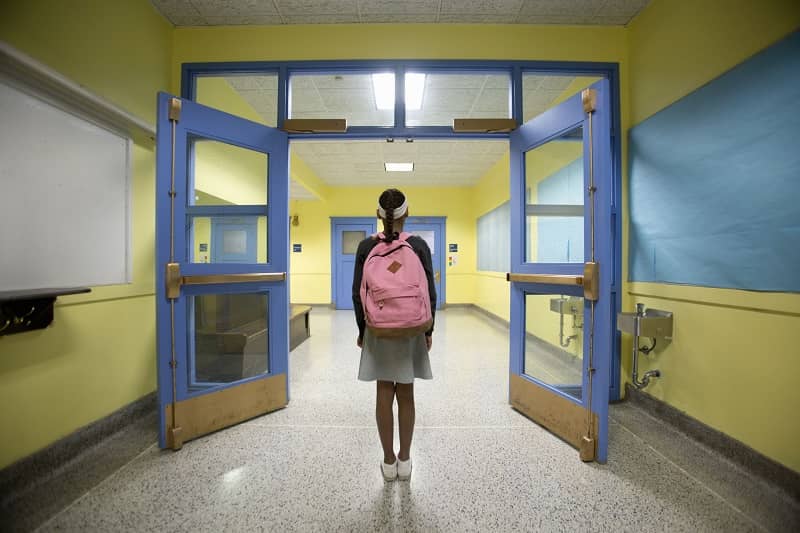Via Email
April 29, 2021
Metro Council
600 NE Grand Ave.
Portland, OR 97232
Re: Metro Council Resolution No. 21-5171—Multnomah County Local Implementation Plan
Dear President Peterson and Metro Councilors:
Today, you are considering Resolution No. 21-5171 to approve Multnomah County’s Local Implementation Plan (LIP) under Metro’s Supportive Housing Services Program. Cascade Policy Institute has been following Metro’s measure and plan since its inception. In January 2021, we published a report on homelessness in the region, which is attached to this letter.
It is your duty to this region to vote no and to order the county develop a new plan that actually delivers services to our homeless residents and provides clear measures of success or failure.
Metro’s Supportive Housing Services (SHS) measure was always a mish-mash of vague aspirations combined with a convoluted process to distribute funds and deliver services. Metro Council outsourced the writing of the measure to the HereTogether coalition and rubber stamped it on its way to the ballot.
NO ACCOUNTABILITY, NO APPROVAL
At a February 24, 2020, work session, Councilor Craddick asked, “How will we measure success? What will the voters see that’s different today than it will be in 5 years? What’s going to be different about having this money available? How will they recognize success?” HereTogether’s Katrina Holland responded, “One of the tasks that we will have to engage in over the next several weeks is trying to figure out what the answer to that question will be.” HereTogether never delivered that answer.
Today it remains unanswered. In a February 21, 2021, editorial (“Metro Lacks Vision for Homeless Services Measure”) the Oregonian notes, “Metro hasn’t offered any vision of what this measure will achieve or defined what success will look like.”
Last week, in an interview with Willamette Week, Multnomah County Commissioner Sharon Meieran condemned the region’s plans, concluding “we don’t have a plan or even a kernel of a plan” for spending billions of taxpayer dollars to get unsheltered residents into stable shelter. Your own oversight committee blasted the LIP’s accountability and measurement provisions (Exhibit B to Metro Council Resolution No. 21-5171).
Yet, here we are today, considering approval of Multnomah County’s LIP, which one of its own commissioners admits isn’t “even a kernel of a plan.” To address the oversight committee’s concerns, the resolution merely directs Metro staff to “work with” the county to address the concerns. Off to the memory hole that one goes.
If you really cared about delivering services to your community, you can stop reading right here, vote no on Multnomah County’s LIP, and tell the county to come up with a plan that has well-defined measures of success. It’s not your job to make a bad plan better. Your job is to mandate a plan that works and has accountability, and to reject a plan that doesn’t.
But, you don’t have to stop here because, as the infomercials say, “Wait, there’s more.”
REJECT MISPLACED PRIORITIES
The U.S Department of Housing and Urban Development (HUD), puts the homeless population into three broad categories: unsheltered, those in emergency shelter, and those in transitional housing.
Unsheltered are the homeless we see sleeping on the streets, in parks, in tents, in cars, or in abandoned buildings. The unsheltered population is front-and-center in the minds of your voters. It’s this population that’s blamed for assaults, stolen bikes, car prowls, shoplifting, fires (both accidental and arson). This population is why many close-in Fred Meyer and Safeway stores now have armed security guards. It’s not because high schoolers are lifting White Claws.
In 2019, Multnomah County’s unsheltered population was at an all-time high, up 22% from the previous count. Even though HUD’s Point-in-Time counts are fairly unreliable, the increase is eye-popping and likely to be worse with the next count.
Portland’s unsheltered homeless population is overwhelmingly white, male, and working age—that’s age 25 to 54. About 60 percent of the unsheltered suffer from mental illness and/or substance abuse. Metro and Multnomah County’s overwhelming emphasis on delivering services to Communities of Color effectively tells the majority of the region’s homeless population, “You’re on your own.”
Multnomah County’s unsheltered are on the move. Ten years ago, 40 percent of the homeless lived downtown. Today, it’s only 20 percent. Not only are there more homeless, but there is a perception of more homeless because they have spread out from downtown across the region.
Despite the enormous importance of addressing the unsheltered homeless population, Metro and Multnomah County have determined unsheltered residents are “not the long-term priority focus” of the SHS program—even though the community demands it be a priority:
. . . service navigation for those who are unsheltered, housing focused year-round shelter, and alternative sheltering options are not the long-term priority focus of this SHS Measure; however, feedback through community engagement identified these as priorities, in particular in the immediate term to address the rise in unsheltered homelessness and the impacts of COVID-19. (LIP, p. 24)
By ignoring the demands of your community, Metro and Multnomah County are feeding into the worst stereotypes held by voters: that local officials and the planning class think they are uniquely blessed in knowing what’s best for the region regardless of what residents demand.
Councilors, it is your duty to reject Multnomah County’s plan. Both you and the counties must revisit the goals of the SHS plan. The main objective must be to reduce the number of unsheltered homeless in the region. This is what your voters want. This is what your homeless residents want. We are not doing them any favors by keeping them on the streets, in our parks, or under our overpasses.
REJECT OUTRAGEOUS OVERHEAD AND SEND THE GRIFTERS PACKING
Metro has advised Multnomah County to expect $52 million in revenues in the first year of the SHS measure’s two income taxes (LIP, p. 10).
Despite spending many months—and unknown, possibly millions, of dollars—assembling the LIP, the county throws up its hands and admits, “it will not be possible to plan for and execute the expenditure of the full $52 million” (LIP, p. 26) But, it’s worse than that. The county identifies less than $7 million of spending in the first year of its plan (LIP, pp. 24-26). The rest is unaccounted for.
Multnomah County has no idea and makes no promises of how or where nearly 90% of the Phase I money will be spent. Some of it might go to rent assistance, but much of it is going to “building system capacity.” This includes hiring 13 full-time equivalent employees at the Joint Office of Homeless Services, as well as spending on “technical assistance, training, and financial support” for the organizations tasked with delivering services. It also includes spending on “data collection, sharing, and evaluation infrastructure.” Then there’s spending on “coordinated access” to “ensure equitable access” to resources—whatever that means.
This is on top of the estimated $40 million or more that Metro is handing over to the City of Portland to collect the new taxes and cover one-time costs associated with setting up the tax-collection systems.
There’s another word for all this spending: overhead. Overhead that does virtually nothing to deliver dollars and services to the thousands of unsheltered residents of our region. Overhead that seems designed to bloat the county’s bureaucracy. Overhead that shovels funds to the so-called “community based organizations” that campaigned so hard to get their hands on our tax dollars, with no promises of accountability and no measures of success.
Councilors, you promised low overhead in this measure. If you approve Multnomah County’s local implementation plan, you are telling your voters that your promises mean nothing. It’s your duty to reject the Multnomah County LIP.
Respectfully submitted by,
Eric Fruits, Ph.D.
Attachment: Eric Fruits, Ph.D. and Vlad Yurlov, Homelessness in the Portland Region: Some Straightforward Solutions to a Complex Problem, Cascade Policy Institute (January 2021).












